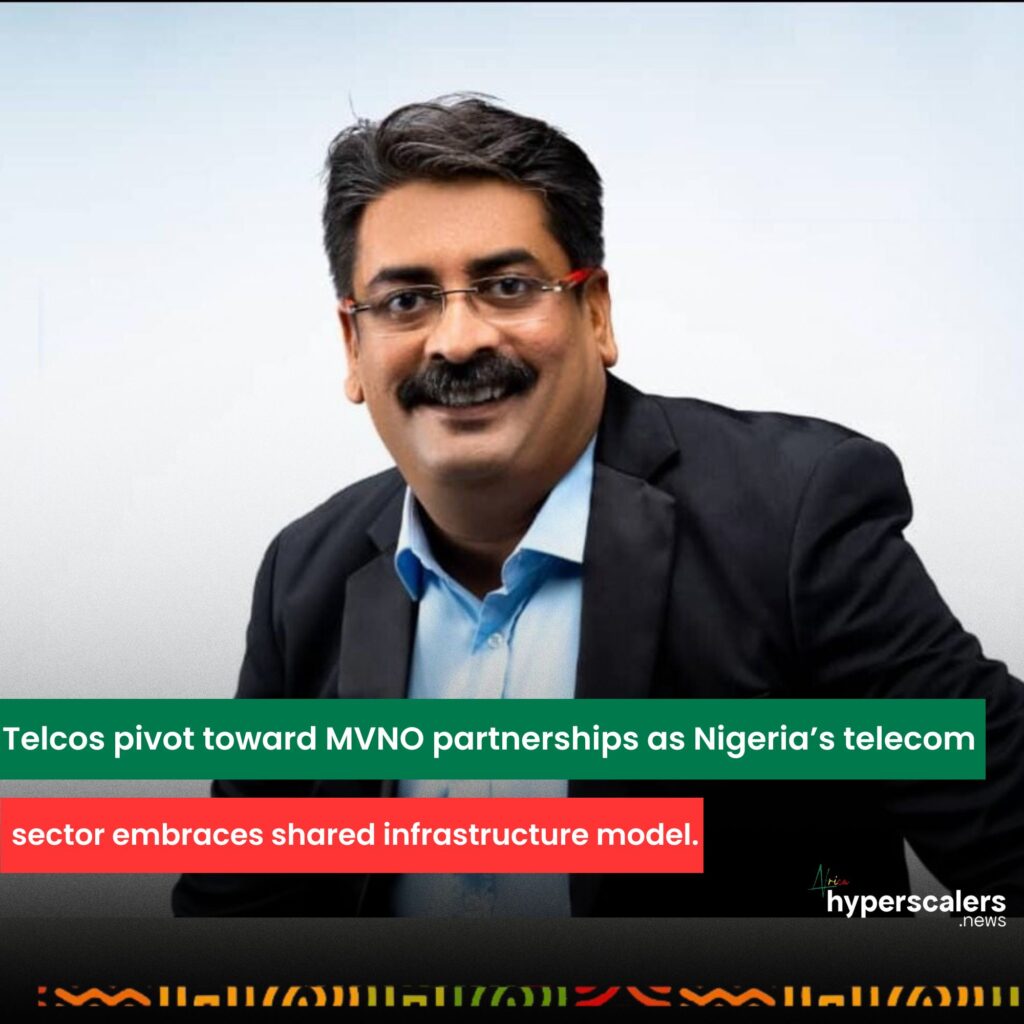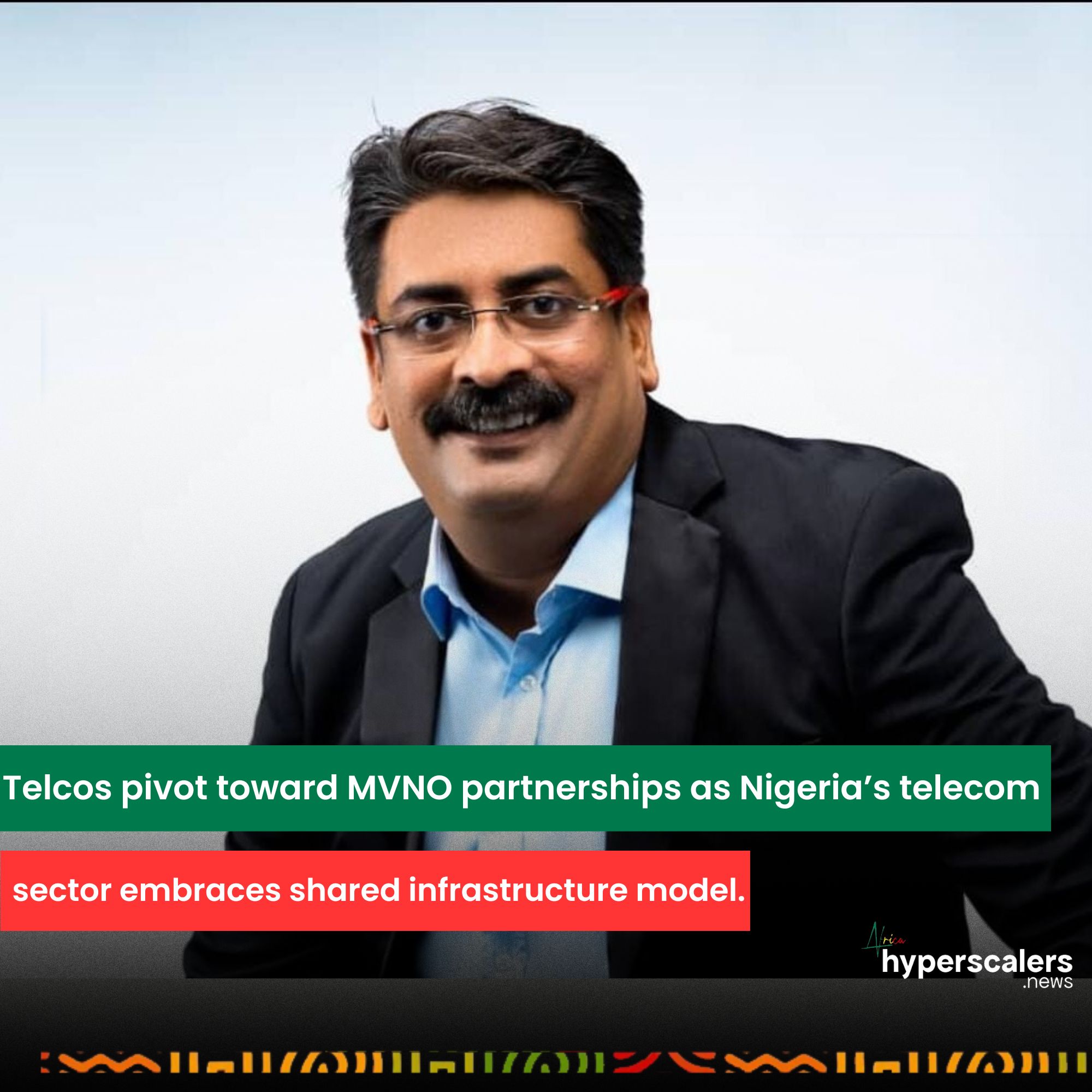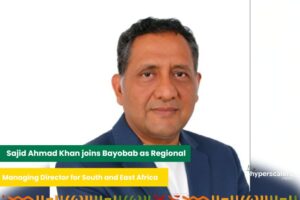Following the successful Africa Hyperscalers MVNO Conference, which put in perspective the sector’s realities and opportunities, Nigeria’s telecom landscape is witnessing a strategic shift as major mobile network operators (MNOs) recalibrate their business models to accommodate and collaborate with mobile virtual network operators (MVNOs). The moves are being hailed as a crucial step toward inclusive connectivity, competition, and infrastructure optimization in one of Africa’s largest telecom markets.
MTN Nigeria is taking a leading position, embracing what insiders call a “platform play” by turning its vast network assets into revenue-generating infrastructure for third-party operators. In the first half of 2025, MTN’s capital expenditure surged by 288.4% year-on-year to ₦565.7 billion ($377.1 million), a figure that underscores the operator’s aggressive investments in 4G rollouts, fiber expansion, and passive infrastructure development.
Its goal is to build a shared digital backbone that enables other MNOs and MVNOs to lease capacity without building out costly physical networks. MTN’s infrastructure now spans over 24,300 tower sites, with fiber routes extending rapidly across Nigeria.

This shift toward wholesale enablement aligns with the Nigerian Communications Commission’s (NCC) inclusion agenda. MTN has begun onboarding MVNOs, with UK-based Lebara reported to launch services on MTN’s network by Q3 2025.
Airtel Nigeria is taking a similarly collaborative approach, but with a strong focus on quality assurance. Speaking at a media roundtable in Lagos, Airtel Nigeria CEO Dinesh Balsingh reaffirmed the company’s commitment to maintaining service excellence even as it embraces MVNO partnerships.
“A reliable network is more important than a cheap one,” Balsingh stated. “Compromising service quality for lower prices would only hinder the growth potential of Nigeria’s digital economy, especially for its tech-savvy and fintech-driven population.”
Balsingh emphasized that the company will not engage in destructive price wars and warned that rising operational costs—particularly energy—require a sustainable pricing approach.
To support future MVNO traffic and preserve service levels for existing subscribers, Airtel is investing heavily in its network, including a new $120 million data center and a nationwide 5G rollout.
While the NCC’s new regulatory framework for MVNOs opens the market to new entrants, Balsingh reiterated the point made at the Africa Hyperscalers MVNO conference that collaboration – not conflict – will define a successful strategy.
“You will collaborate on certain things, and that’s the best benefit for the consumer,” he said. “Competition is natural, but collaboration leads to better outcomes.”
Balsingh concluded by signaling that Airtel is in the final stages of preparing for MVNO partnerships.
“We are very close to starting off things,” he said, noting that multiple engagements are already underway.
As Nigeria embraces a more open and shared telecom infrastructure model, the shift could have ripple effects across Africa’s digital economy, boosting innovation, expanding coverage, and redefining competition in the age of cloud, fintech, and AI.
Ready to dive deeper into the hyperscale revolution impacting Africa?
READ MORE HERE: www.africa.hyperscalers.news
Contact Us:
Email: projects@hyperscalers.news
Phone: +2348109003350
Follow us on Social Media: Instagram, Facebook, LinkedIn, x





